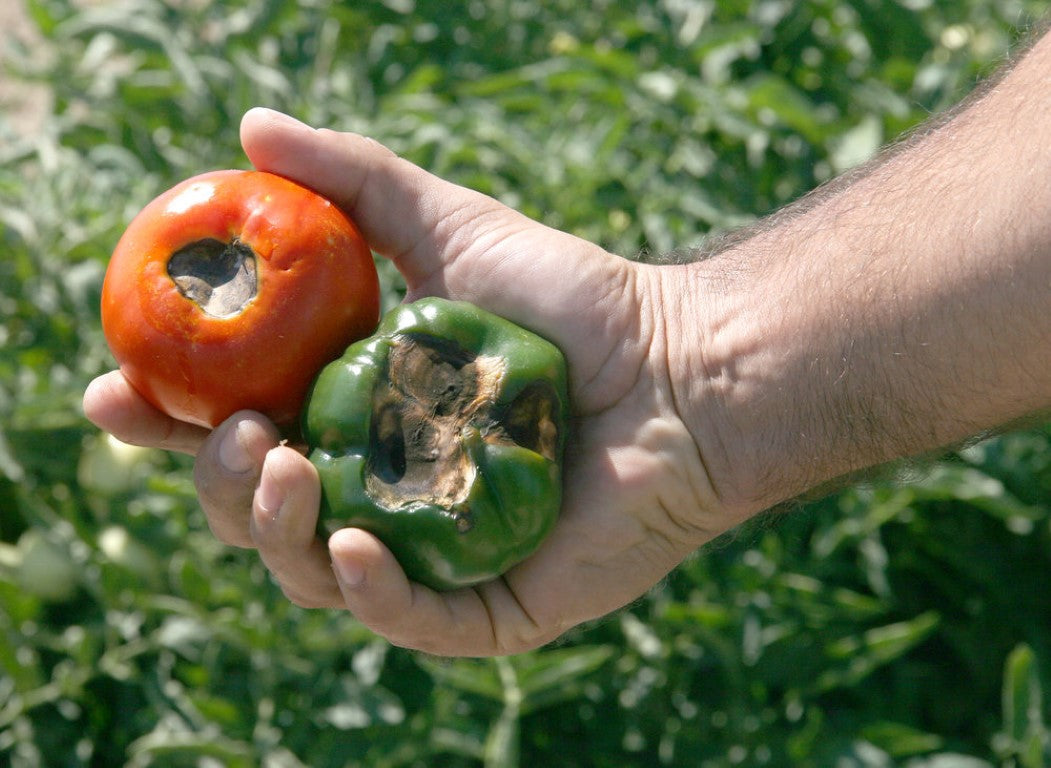Blossom End Rot is a physiological disorder of tomatoes where the tissue of the blossom end of the fruit (the part of the fruit opposite the stem) breaks down and rots, thus reducing yield.
BER is caused by a lack of calcium in the fruit. This lack of calcium may be due to low calcium levels in the soil. More often, there is plenty of calcium in the soil, but its availability for uptake and transport to the fruit is impaired. Drought stress, alternating soil moisture extremes, damage to a plant’s roots, cold soils and high concentrations of ammonium can inhibit calcium uptake.
Movement of calcium within plants is dependant on active transpiration. It moves from the roots into the fruit and leaves, via the xylem. Calcium moves more easily into leaves where it remains, it does not later move from leaves to fruits, it doesn't have that ability.
How to control and prevent Blossom End Rot
Cultural: Four things you can do culturally to help reduce BER are:
- Don't plant too early when the soils are too cold.
- Don't cultivate too close to the plant, damaging the roots.
- Mulch the plants and water from below keeping even moisture levels.
- Avoid using excess Ammoniacal Nitrogen.
Prevention: Adding lime or liquid calcium to the soil when planting will supply Ca to the leaves, but NOT the fruit. You can use Calcium Nitrate (the only form of Ca that moves into the fruit) at planting. Then, apply it again when the little fruit start to form and finally 2 to 3 weeks later.
Control: If you already have BER, a two fold approach may be nesesary. First, apply Calcium Nitrate and repeat in 2 to 3 weeks. Then, Apply Yield Booster to the fruit, NOT the leaves, repeat at 10 to 14 day intervals. Remove infected fruit to direct energy to non-infected fruit.
Feed with ferti-lome Tomato and Vegetable Food, this is a lower Ammoniacal Nitrogen fertilizer which will NOT compete with the calcium uptake, repeat every 3 to 4 weeks.
Improve fruit set with ferti-lome Tomato & Pepper Set. Apply to the BACK of the blossom and adjacent stems, repeat every 10 to 14 days. This will increase the speed of ripening and yield.
Pepper, eggplant, watermelon and squash fruits can also be affected by Blossom End Rot.

